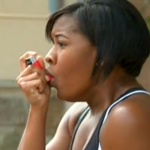
(Part
of an occasional series.)
There
are several ways of measuring risks. Two of the most commonly used are absolute
risk and relative risk.
They’re easily explained, and being able to recognize what they mean can help
you interpret all kinds of scientific data, especially medical studies and
advertisements.
Absolute risk is the overall proportion of a group likely to have a certain
outcome. For example: on average, 9.9 percent of children between the ages of
zero and 17 in Connecticut were afflicted with asthma during 2001-2005,
according to the National Health Interview Survey (NHIS),…




